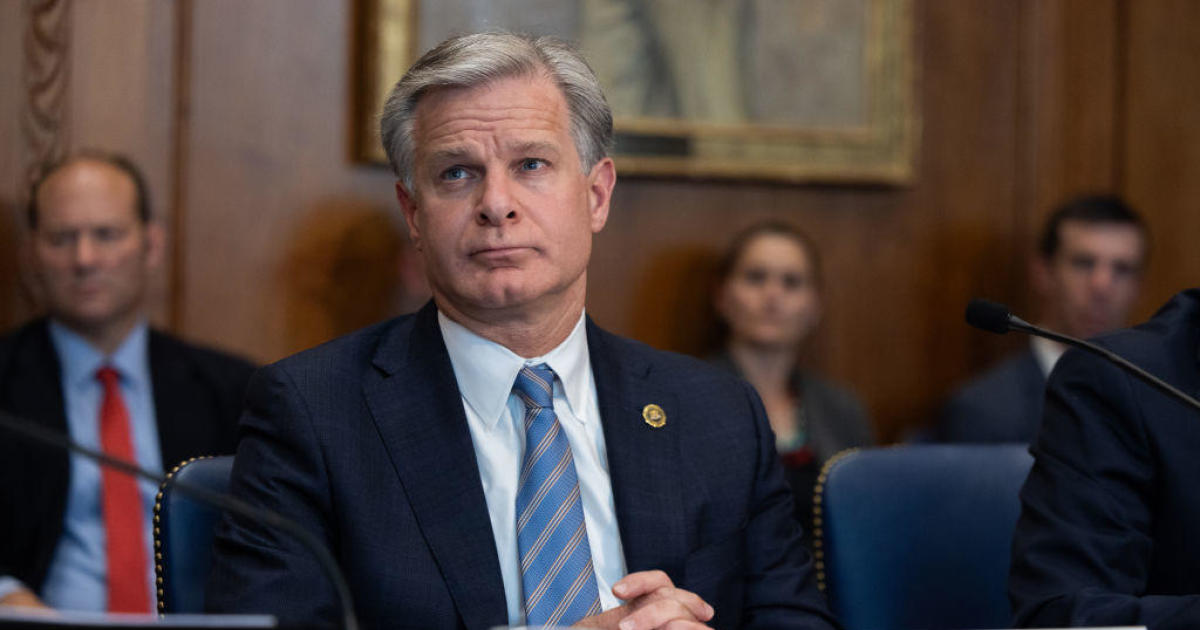FBI Director Christopher Wray has made the decision to resign from his position at the end of the current administration, which will occur prior to President-elect Donald Trump’s inauguration next month. This announcement was made during a town hall meeting with FBI employees on Wednesday, where Wray expressed his desire to continue serving until the end of the current administration in January before stepping down.
In his statement, Wray emphasized the importance of maintaining focus on the bureau’s mission and the essential work being done on behalf of the American people every day. He highlighted the significance of avoiding further entanglement in political disputes and reaffirming the core values and principles that guide the FBI’s operations. Despite his deep affection for the bureau, Wray stressed that his primary concern has always been acting in the best interest of the FBI and its mission.
President-elect Trump responded to Wray’s announcement with a positive message on social media, describing it as “a great day for America.” Trump initially appointed Wray, a former federal prosecutor and counterterrorism official, as FBI director in 2017 for a 10-year term following the dismissal of James Comey. However, Wray faced criticism from Trump and his allies regarding the FBI’s handling of various investigations during the president-elect’s tenure.
Although Wray continued to serve as director under President Biden, Trump had previously expressed his intention to replace Wray with Kash Patel, a former GOP congressional staffer who held positions in the Defense Department and the Office of the Director of National Intelligence during Trump’s first term. Wray reassured FBI employees that their allegiance lies with the American people and the Constitution, emphasizing the bureau’s commitment to upholding its responsibilities with integrity and rigor.
Attorney General Merrick Garland commended Wray for his years of honorable and principled service, highlighting his dedication to preserving the independence of the FBI and upholding the rule of law. The role of FBI director is intended to be insulated from political influences through a 10-year term, although presidents retain the authority to dismiss and nominate directors as they see fit. The Senate must confirm any presidential nominee for the position of FBI director.
Wray’s decision to step down paves the way for Patel to assume leadership of the FBI in Trump’s second term. Patel has engaged in discussions with senators responsible for confirming his appointment, signaling a potential shift in the bureau’s leadership. Wray and the FBI came under intense scrutiny in 2022 following a search warrant executed at Trump’s Mar-a-Lago residence, which revealed a federal investigation into his handling of classified information post-presidency.
If confirmed as FBI director, Patel would be the third individual to hold the position under Trump’s administration, amidst ongoing tensions between the president-elect and the federal agency. While Wray’s departure was anticipated, Trump’s nomination of Patel sparked speculation within federal law enforcement circles regarding the director’s future ahead of the incoming president’s inauguration. Wray assumed the role of FBI director after Comey’s dismissal, focusing on internal reforms and addressing national security threats posed by foreign adversaries.
The FBI, comprised of approximately 35,000 employees including field agents, plays a crucial role in enforcing federal laws and investigating crimes such as terrorism, espionage, and child exploitation. Patel, known for his outspoken criticism of the FBI, has vowed to implement significant reforms and seek accountability for perceived injustices, aligning himself with Trump’s agenda. Wray reminded FBI personnel of their duty to conduct investigations impartially and adhere to established protocols.
As a direct report to the U.S. Attorney General, Patel’s potential appointment as FBI director underscores Trump’s commitment to reshaping the federal law enforcement apparatus. Democratic lawmakers and former officials from Trump’s first term have raised concerns about Patel’s nomination, drawing comparisons to authoritarian regimes. However, Republicans in Congress have expressed openness to Patel’s nomination, believing he could bring about positive changes within the FBI.
In conclusion, Wray’s impending resignation marks a pivotal moment in the FBI’s history, setting the stage for a potential leadership transition under Trump’s administration. The appointment of Patel as FBI director, if confirmed, could signal a new direction for the bureau and its approach to law enforcement in the coming years. The ongoing political dynamics surrounding the FBI’s leadership underscore the importance of safeguarding the bureau’s independence and upholding its mission to serve the American people.









